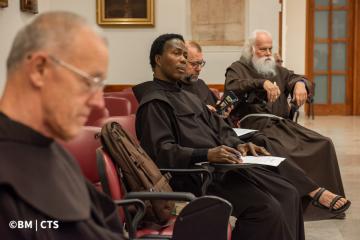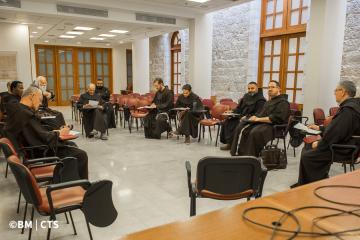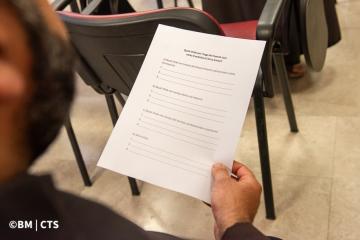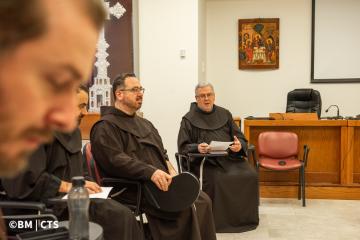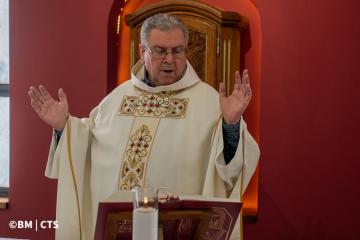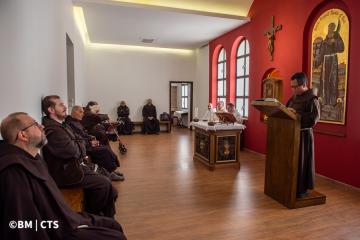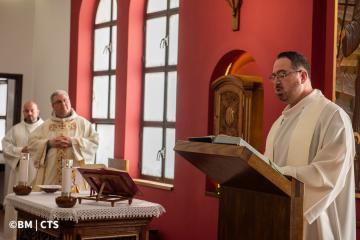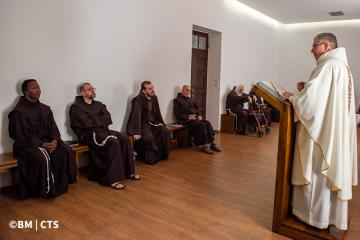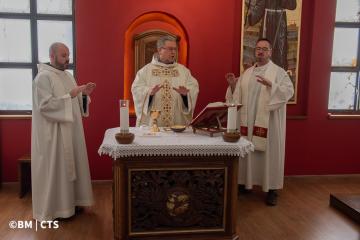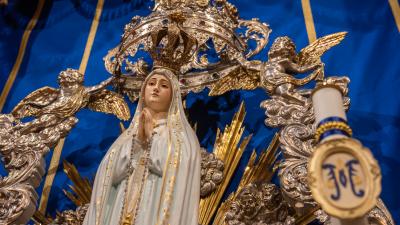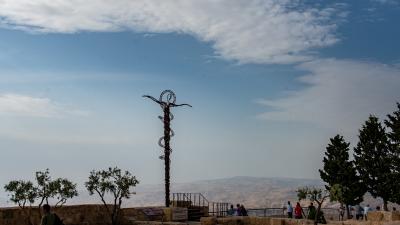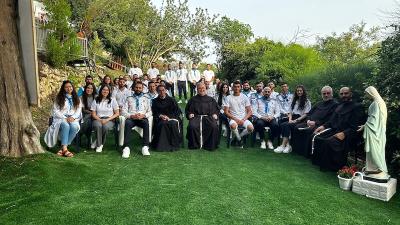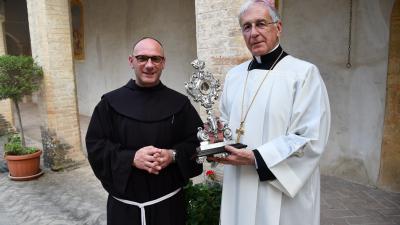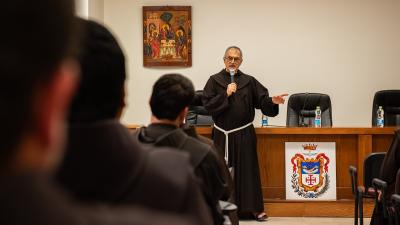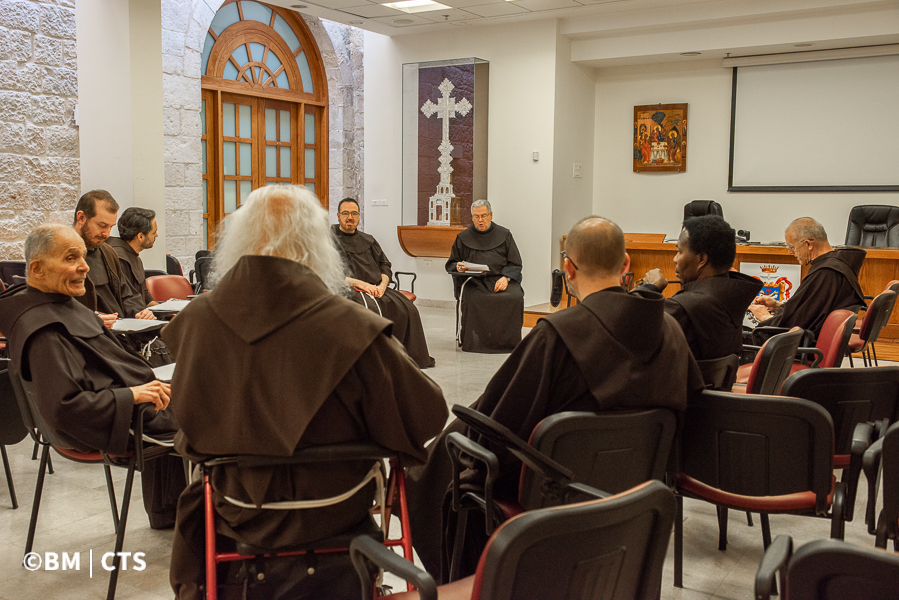
The Custody of the Holy Land, like the whole of the Franciscan Order, has started a reflection on the vocation and role of “lay brothers.” This expression refers to religious who are not also priests. On Monday 22 April, the “lay brothers” of the Custody (there are 34 of them in all) met in Jerusalem for a day of study, reflection and dialogue. The Custos of the Holy Land, fra Francesco Patton, also took part in one session and celebrated Mass for them.
In dialogue
About fifteen friars gathered in the rooms of the Curia. The morning opened with a report on some figures of lay brothers in the history of the Order and one on some aspects of canon law concerning this specific figure. In addition, a recent rescriptum by Pope Francis has opened the doors to the possibility of appointing or electing lay brothers to governing roles in the Order at all levels. The participants had a calm and open dialogue among themselves and with the Custos. In the afternoon, they met again to continue the work of discussion, which will converge into possible proposals to take to the General Chapter of the Custody in 2025 and the meeting of the lay brothers of the whole Order, again scheduled for next year.
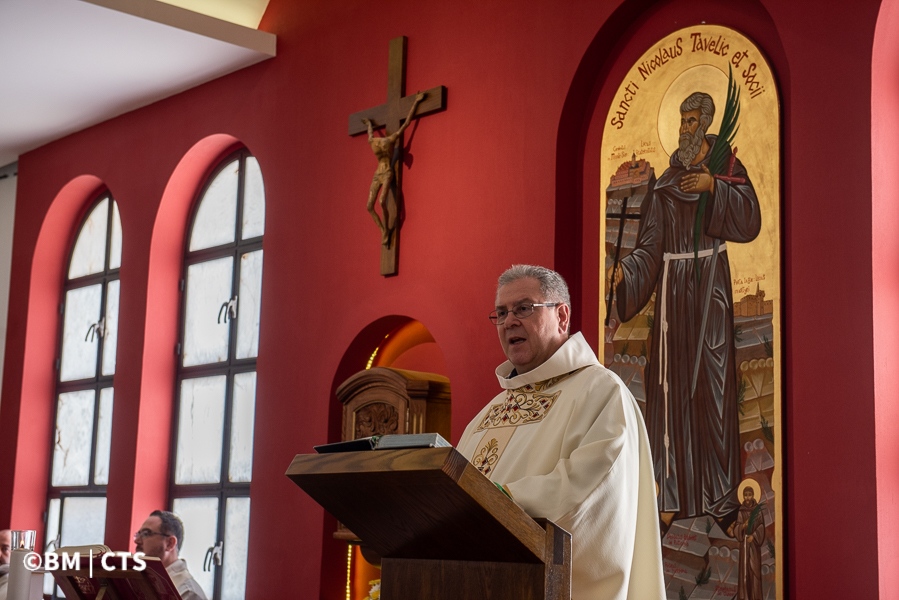
The same dignity, different service
“We are first of all in equal dignity “friars minor.” The distinctions do not concern dignity but the ministry, i.e. the service that we are called to perform. We are not called to all do the same thing,” the Custos emphasized in his homily. It is at this level that the distinction is made between clerics and lay, that especially in the past lay in the distinction between preaching and manual labour. However, for all, without distinction, the indications of St Francis in the Rule apply to everyone in the same way.
The original call
The call to religious life is the first and common vocation of Friars Minor. It receives its full form in the solemn profession. It is only afterwards on the formative path of the Order that a possible discernment for the priesthood begins. “We ask the Lord for the grace to rediscover more and more our common dignity as those who have been called,” the Custos said in his homily. Later we wonder in which concrete way we are called to put ourselves at the service of the whole Church and of our fraternity. Lastly, let us remember that following Jesus means being willing to give our lives for one another, exactly as he gave his for us.”
Being a “lay brother”
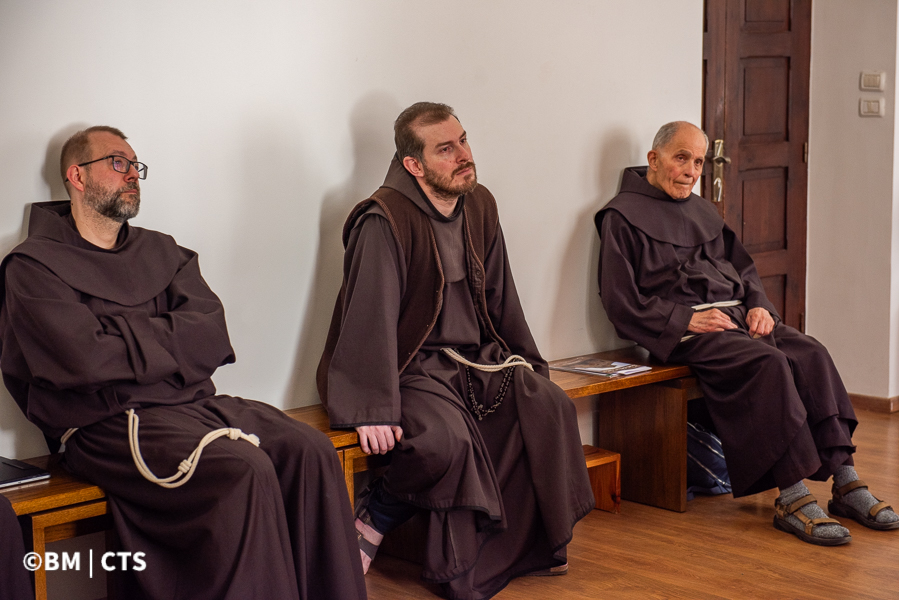
Being a lay brother is not only the result of the decision not to be a cleric, but is a genuine active decision, a vocation that each one is called to discover, recognize and embrace. There are several paths that lead to this awareness. “During the years of formation, I started to wonder whether the Lord was inviting me to offer myself to him in the form of the priesthood or in another way,” says fra Marco Maria Baldacci, pro-secretary of the Custody. “After the solemn profession, I set out on path of discernment, but at present I do not have any elements to say with any certainty that the Lord is calling me to the priesthood. Moreover, I have never thought that by not being a priest, a piece of my life is missing. My calling is to be a Franciscan in the Order of Friars Minor. I feel my life is complete and my service is total.”
An identity to discover
Today, an increasing number of friars receive the holy orders as deacons or priests – in the whole order more than 80%. As well as being a richness, this asks questions about the nature of the Order, on its direction and the type of service to the Church. “In the rule we profess,” the Custos stresses, “our identity is stated in very few words: observe the Gospel living in obedience, without anything of our own and in chastity. There is not a different rule for cleric friars or lay brothers; there is no different vocational identity. The work of formation is to help all the friars discover and rediscover the common identity of friars minor. In the post-Vatican Council generation, we have tried to return to this common and fundamental identity, understanding that it also becomes specific in various types of service.”
The same class
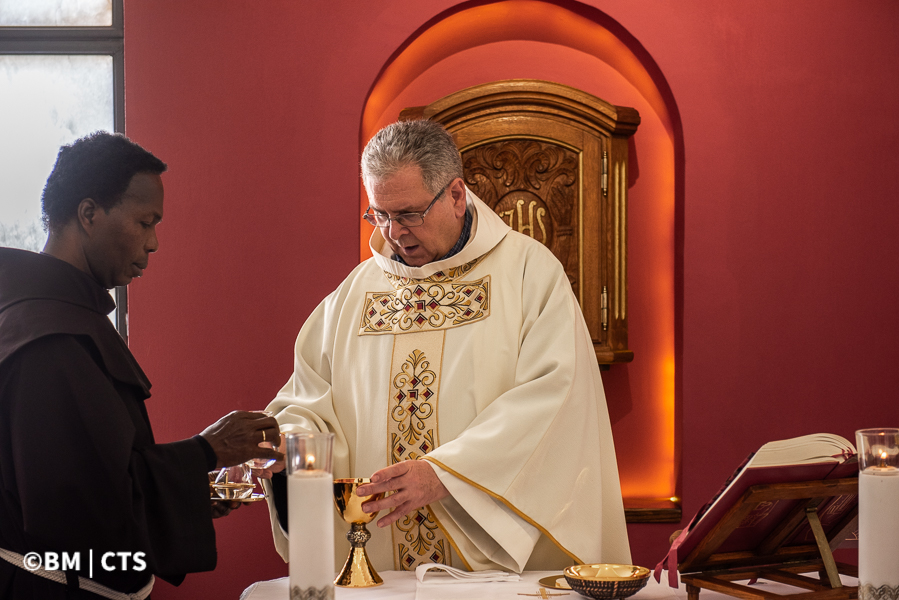
In the Holy Land, many friars who are priests do work which is not closely concerned with the ordained ministry, such as in the field of education. Some services are usually reserved for lay brothers, such as that of first sacristan in the shrines where the Status Quo is in force. At the moment, the head of the infirmary, the deputy general bursar and the bursar of St Saviour’s Convent, and the pro-secretary of the Custody are lay brothers. “The path to take,” according to the Custos, “is to overcome some attitudes, usually unconscious, which are the residue of a clerical mentality, in which the priest is thought to be of a higher class than those who are not. It is not like that.”
“Nobody must be forced into becoming a priest if they do not feel called. On the other hand, nobody must choose the priesthood out of convenience or to occupy certain roles,” says fra Marco Maria. “Being a priest is not a passepartout, just as being a lay brother is not a limitation: it is simply recognizing what the Lord calls us to be and accepting it, even though at times it may not coincide with our initial ideal. The important thing is being ready for what the Lord asks, in any form it may be. The joy in giving ourselves to Christ and that inner peace that nothing and nobody can take away from us depend on this.”
Marinella Bandini


